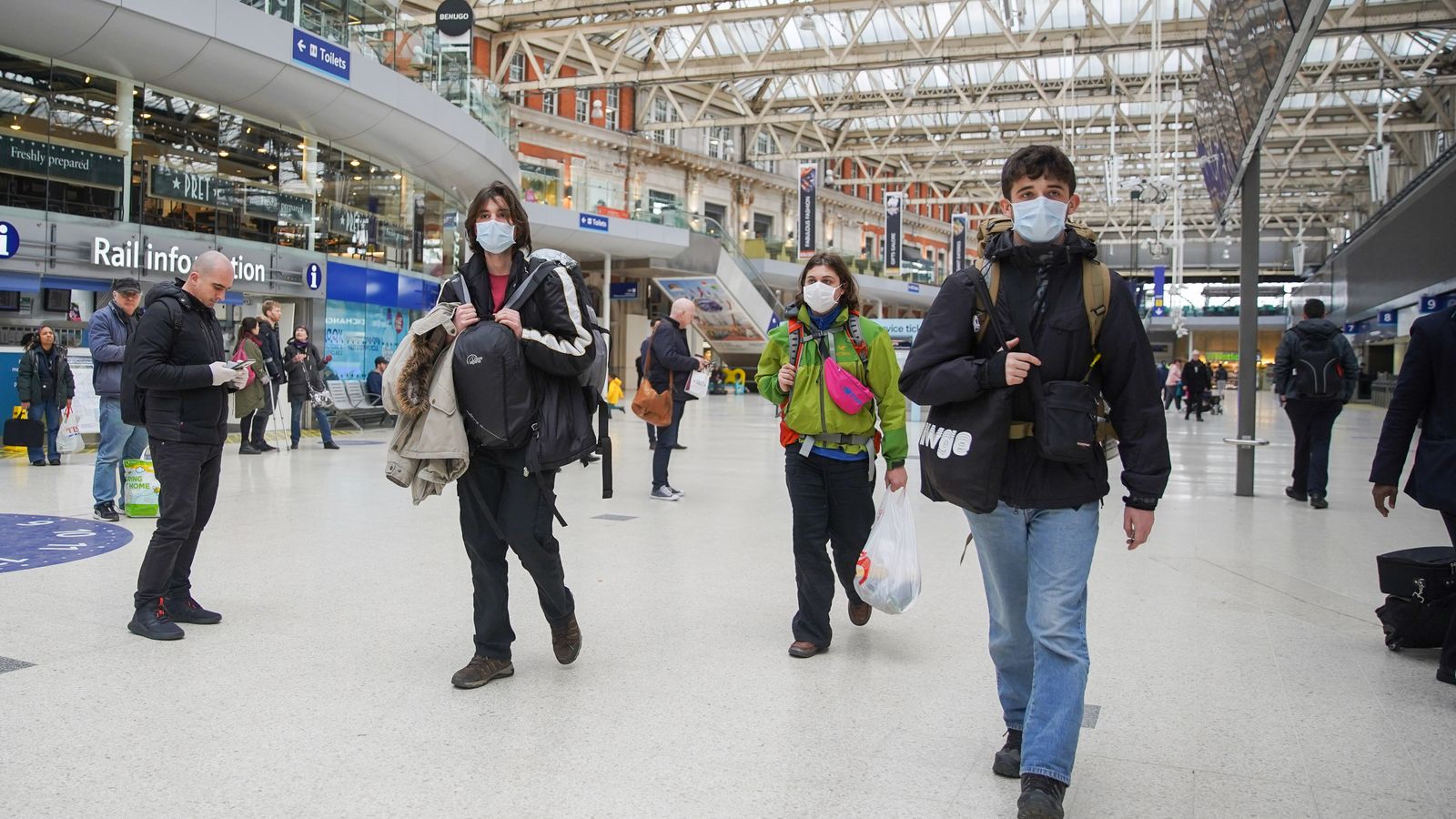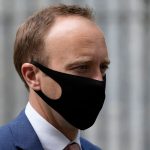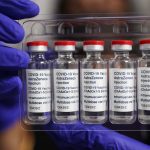Ministers plan to take more control of public health once Public Health England is disbanded, raising concerns about the growing centralisation of healthcare during the coronavirus pandemic.
Policies on smoking, air quality, obesity and mental health will be directed from Whitehall rather than by a specialist public health body under proposals set to be unveiled next month, Sky News has learned.
Live COVID updates from UK and around world
The plans were disclosed last Friday in a staff meeting hosted by senior leaders at Public Health England (PHE) and Test and Trace, a recording of which has been passed to Sky News.
The meeting laid out ministers’ intentions for the 5,500-person public health agency, which is set to be partially replaced on 1 April by the new National Institute for Health Protection (NIHP).
The prime minister is currently considering who to appoint as the first CEO of NIHP, according to Test and Trace boss Dido Harding, who told the meeting that the recruitment process had reached its “final stage”.
The new institute will take over the management of the COVID-19 pandemic and preparations to deal with future emergencies, under plans unveiled by Matt Hancock last August.
Yet it has not been clear what will happen to parts of PHE not focused on health protection, in particular its “health improvement” divisions, which work on topics such as alcohol abuse, mental health, smoking and obesity, as well as tackling health inequality.
Please use Chrome browser for a more accessible video player
PHE director of strategy Cathy Morgan told staff no “formal decisions” had been made about the fate of health improvement.
But, she said, the team working on what is referred to internally as the “transition” had been given “a very strong steer” by the health secretary ahead of his final decision, which is expected in the next few weeks.
Mr Hancock did not want to hand public health over to the NHS, Ms Morgan said, telling staff: “I can confirm that, at the moment, we are not anticipating the bulk of health improvement functions will be moving to the NHS.”
Instead, she said, Mr Hancock “would like to see” PHE’s policy work moved into the Department of Health and Social Care (DHSC).
Mr Hancock had also “indicated” he wanted PHE’s data, analysis and scientific research work to move into DHSC, Ms Morgan said.
The destination of PHE’s regional health improvement and healthcare work was still being decided, Ms Morgan said, but there was “an expectation” it would end up “sitting between” DHSC and health service oversight body NHS Improvement.
Although PHE is an executive agency of DHSC, making it directly accountable to ministers, it has always had “operational autonomy”.
Under these plans, large parts of its work will come under the direct control of the health secretary.
Experts said the moves – which come after plans were unveiled earlier this month for ministers to take more control over the NHS – could bring benefits but risked removing an independent voice for public health.
Jo Bibby, director of health at the Health Foundation, said moving health improvement teams into the DHSC was “pragmatic”, but that public health would only be improved if there was “much stronger scrutiny from an independent voice” and hugely increased funding for local health infrastructure.
Sally Warren, director of policy at health think tank The King’s Fund, said the shift could help public health officials influence policy decisions across Whitehall, but that it would only be effective if there was “a credible voice supported by transparent and independent evidence”.
She added: “This was a key benefit of having an independent agency and one that needs to be maintained if the government is serious about public health.”
Yet both Ms Warren and Ms Bibby, who formerly worked as senior officials at DHSC, sharply criticised the “anxiety” and “distraction” provoked by the decision to reorganise PHE in the midst of a pandemic.
“It distracts a lot of time and attention away from dealing with the pandemic and on to thinking about structures and people being concerned about their own individual job security,” said Ms Bibby.
During the half-hour meeting, which was attended by five of the most senior figures at PHE and Test and Trace, there were repeated references to the uncertainty caused by the “transition”, with numerous questions from staff about their future employment, only some of which were able to be answered.
When Baroness Harding moved to reassure staff, she also cast doubt on the impact NIHP would have on the current pandemic, saying: “Nobody’s terms and conditions will be changing on 1 April and actually, practically, the work we will be doing won’t be changing either.”
The much-criticised Test and Trace boss, who is acting as executive chair of NIHP, previously said that the institute will not be “fully staffed and up and running” until October, even though the government originally said it would be “established and fully operational by spring 2021”.
PHE declined to comment on the proposals.
A DHSC spokesperson told Sky News: “The National Institute of Health Protection will combine the health protection expertise in PHE, the scale up capabilities of NHS Test and Trace, and the data-crunching proficiency in the Joint Biosecurity Centre.
“It is a clear opportunity to help us respond to present and future threats to public health.
“We are currently consulting staff and engaging with an external stakeholder advisory group on where PHE’s health improvement functions can be put to best use as we continue to support the UK’s public health system – helping people live longer, healthier and happier lives.”






















